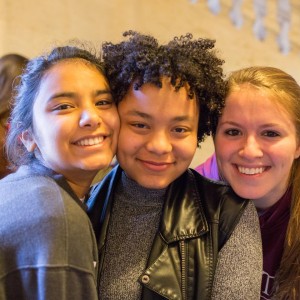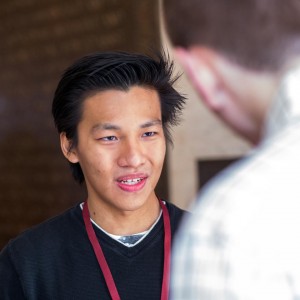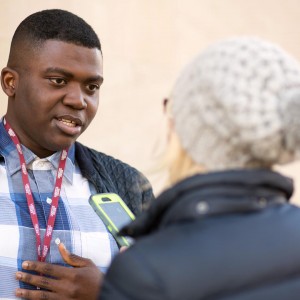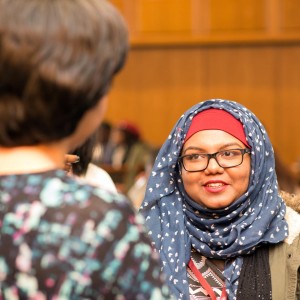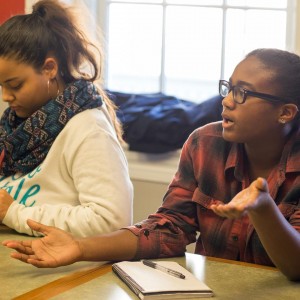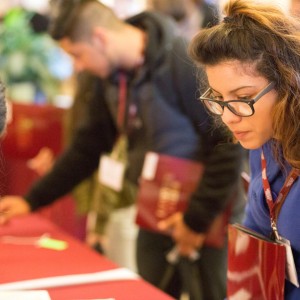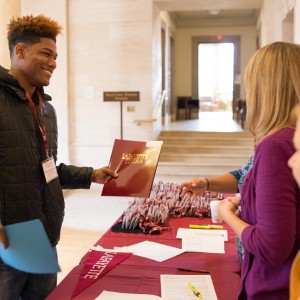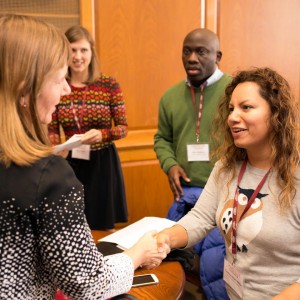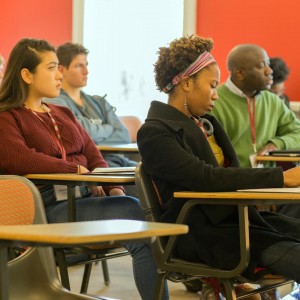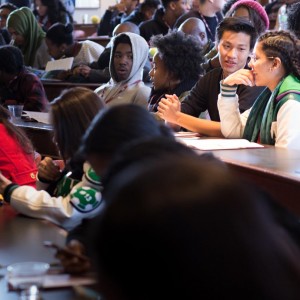Our Beloved Community
Our Beloved Community, Lafayette’s fourth annual diversity symposium, drew 150 prospective students from around the world to engage in open dialogue about social engagement and active citizenship. The symposium is named for Dr. Martin Luther King Jr.’s vision of a society that embraces its members through understanding and celebrating their differences.
Faculty, staff, and current students hosted presentations on opportunities in-and-out of the classroom for students to advance their cultural knowledge, awareness, and skills. Some of the sessions included the Power of 3D Printing in Social Justice, Art Capturing Social and Cultural Movements, Kaleidoscope: Lafayette’s Social Justice Peer Education Program, Careers in Social Justice, Race and Journalism, the Colorblindness Myth, the Gender Pay Gap, and the Mathematics of Social Justice.
Prospective Students Discuss Our Beloved Community
Lovejoy Afoakwa
Ghana, West Africa
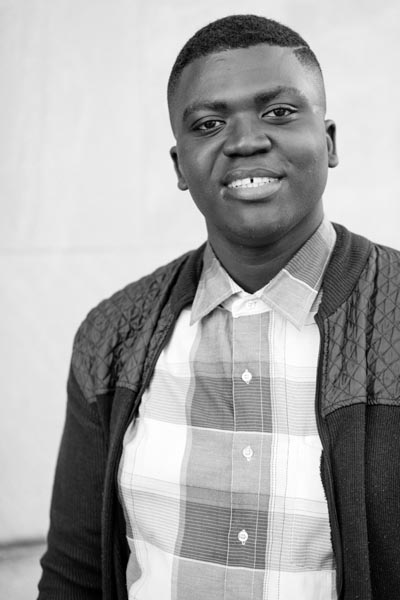 “It’s been really great. One thing that I learned from this experience is what micro-aggression is: if someone says something offensive but they don’t know it’s hurtful to you. This reminded me of when I first got here because I moved to the country just two years ago. It was really hard for me because I had to go to a tutoring class, and my first day in there people were laughing at my accent and I felt offended. I was angry. But one thing I learned from today is that I shouldn’t have gotten angry because they didn’t know what they were doing. I should have taken it as an opportunity to educate them on that because if I don’t voice my concerns they’re going to keep doing it and there’s not going to be any change.”
“It’s been really great. One thing that I learned from this experience is what micro-aggression is: if someone says something offensive but they don’t know it’s hurtful to you. This reminded me of when I first got here because I moved to the country just two years ago. It was really hard for me because I had to go to a tutoring class, and my first day in there people were laughing at my accent and I felt offended. I was angry. But one thing I learned from today is that I shouldn’t have gotten angry because they didn’t know what they were doing. I should have taken it as an opportunity to educate them on that because if I don’t voice my concerns they’re going to keep doing it and there’s not going to be any change.”
Cristal Maria
Brooklyn, N.Y.
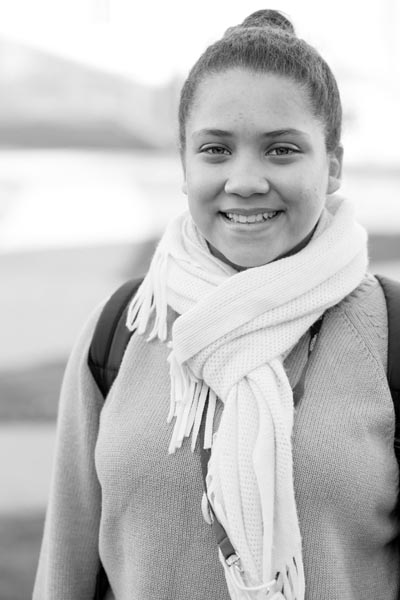 “I really enjoyed my time at OBC. It brought out important issues that I wasn’t familiar with and that I should be familiar with to because they’re happening right next door. This morning I learned a lot about modern day slavery, and they showed this video of a girl who has a normal life and is very privileged and next door is someone who was forced into prostitution. It shows how relevant these issue are and if OBC didn’t give me an opportunity to learn about them then there would be no way that I could possibly change anything that’s going on around me.”
“I really enjoyed my time at OBC. It brought out important issues that I wasn’t familiar with and that I should be familiar with to because they’re happening right next door. This morning I learned a lot about modern day slavery, and they showed this video of a girl who has a normal life and is very privileged and next door is someone who was forced into prostitution. It shows how relevant these issue are and if OBC didn’t give me an opportunity to learn about them then there would be no way that I could possibly change anything that’s going on around me.”
Justyn Diaz
New York, N.Y.
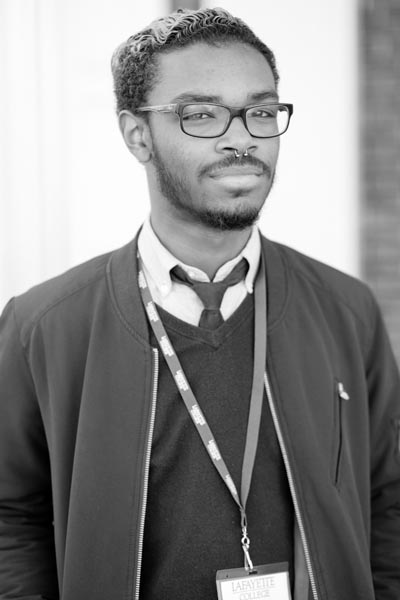 “I came here trying to figure out if this was the right place for me and based on the discussions we’ve had in two of the sessions, it definitely is. I go to a school that’s mostly Hispanic and Black people. That’s the whole point of the school’s creation because there’s a system against people of color. These talks have really helped me figure out that this school believes in the same things as my high school. I’ve noticed a lot of other schools don’t really care about social issues, and if a school takes the time to have something like this, then I know that they care.”
“I came here trying to figure out if this was the right place for me and based on the discussions we’ve had in two of the sessions, it definitely is. I go to a school that’s mostly Hispanic and Black people. That’s the whole point of the school’s creation because there’s a system against people of color. These talks have really helped me figure out that this school believes in the same things as my high school. I’ve noticed a lot of other schools don’t really care about social issues, and if a school takes the time to have something like this, then I know that they care.”
Tabatha Cortes
Brooklyn, N.Y.
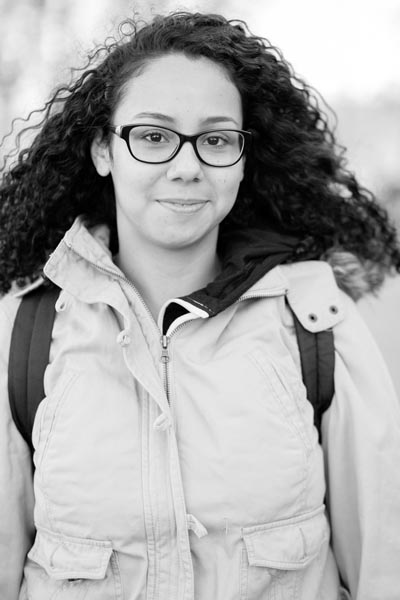 “Today was amazing. OBC was just so mind opening. It was fantastic. It was like a conversation about raw and honest issues that usually get brushed away in our society because they make people uncomfortable. But today was a day to open up and talk about them because these issues, these differences matter, and it’s important to talk about them and celebrate them.”
“Today was amazing. OBC was just so mind opening. It was fantastic. It was like a conversation about raw and honest issues that usually get brushed away in our society because they make people uncomfortable. But today was a day to open up and talk about them because these issues, these differences matter, and it’s important to talk about them and celebrate them.”
Alex Cohen
New York, N.Y.
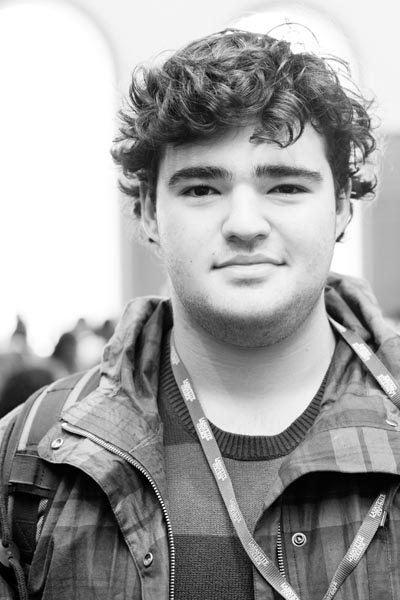 “I felt it was really inclusive and it made me feel like a part of the Lafayette community as well as the OBC community. It was really inspiring.”
“I felt it was really inclusive and it made me feel like a part of the Lafayette community as well as the OBC community. It was really inspiring.”
Misbah Awan
Astoria, N.Y.
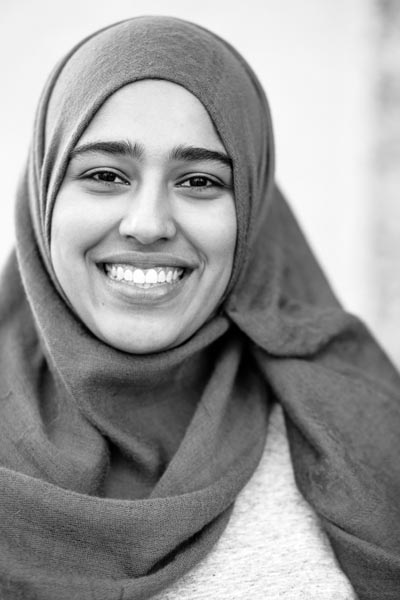 “I’ve come to similar seminars before where it’s very social justice based, but this time around I think I really started to internalize what vulnerability means to me, especially in a society where identity is so important among people. My one takeaway is that I’m hoping college allows me to find my narrative and how I can navigate through this anger and sort of resentment that I’ve grown up on being a woman of color and also being part of a culture that oppresses women culturally speaking. I just hope that becoming independent from my parents will allow me to find myself and become more aware of who I am and also get the necessary education I need to be self-sufficient.”
“I’ve come to similar seminars before where it’s very social justice based, but this time around I think I really started to internalize what vulnerability means to me, especially in a society where identity is so important among people. My one takeaway is that I’m hoping college allows me to find my narrative and how I can navigate through this anger and sort of resentment that I’ve grown up on being a woman of color and also being part of a culture that oppresses women culturally speaking. I just hope that becoming independent from my parents will allow me to find myself and become more aware of who I am and also get the necessary education I need to be self-sufficient.”
